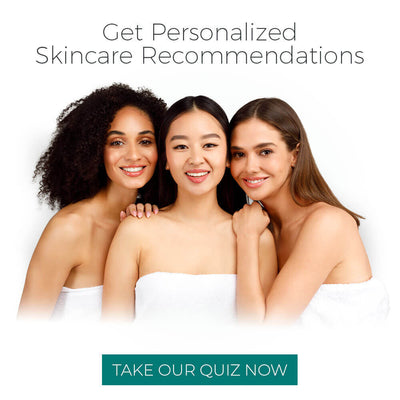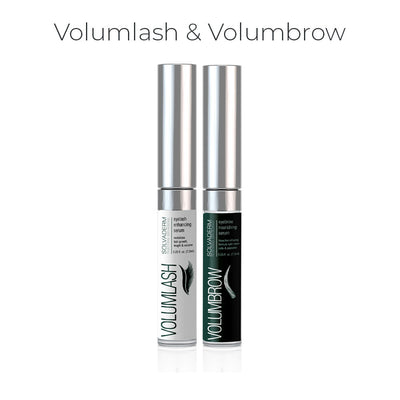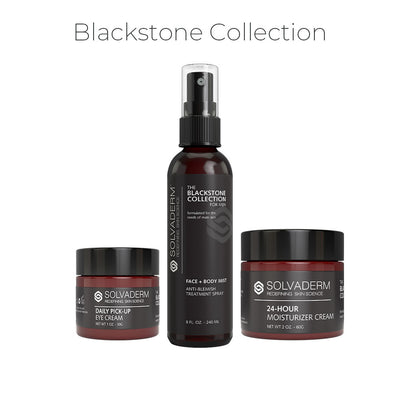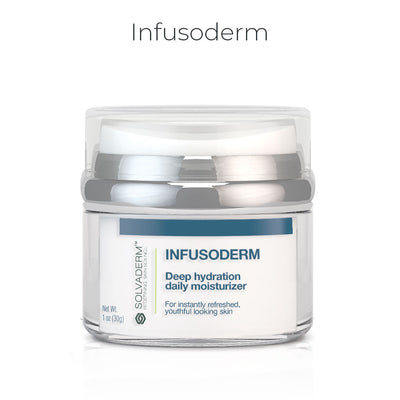If you experience regular acne or pimples, you may have noticed that sometimes instead of disappearing, blemishes turn into dark spots that mar your complexion. As the theme of this article is ‘Acne Turned Black: What to Do and How to Treat it,’ we’ll tell you what to do if these dark areas concern you and provide a number of possible solutions.
Pimples usually turn black due to excess production of the skin pigment melanin in the area as it heals, and it may also occur when people try to pop these blemishes leading to excess irritation.
In this article, we’ll explain the causes of dark pimples in-depth, and provide you with skincare, medicinal, and in-office methods that can fade these spots, leaving your complexion clear and your skin tone balanced.
What Causes Acne to Turn Black?
Black acne begins as a pimple, wound, rash, or blemish which leads to severe inflammation and redness on the skin. As the healing progresses, the skin sometimes produces too much of the pigment melanin, leading to a darker color in the area of the acne or blemish called post inflammatory hyperpigmentation.
With black acne, swelling and redness occur on top of the skin, which distinguishes it from acne scars where the inflammation is underneath the skin's surface.
As the degree of inflammation determines how dark the pimple will be, popping it or scratching the area can exacerbate the problem. In addition, black acne or dark spots can develop due to overexposure to the sun’s rays.
Tips To Get Rid of Acne Turned Black (Dark Spots)
If you’re prone to black acne or have some areas of hyperpigmentation that you want to get rid of, you should know that there are a number of possible skincare, medical, and in-office dermatological solutions. Read on for some of the best tips for fading dark spots.
Tip #1 - Know The Causes
Understanding the reasons behind your own black acne is the first step in getting rid of it. If you regularly pop pimples, stop the habit, and ensure that you wear strong sunblock every time you go outside to prevent hyperpigmentation. In addition, make sure your skincare routine includes some potent anti-acne products and ingredients.
If you’re interested in trying some possible home remedies to fade dark spots, here are a few ideas that may have an impact:
- Drinking Water - Increasing your daily water intake is a great way to promote healthier, clearer skin, increase blood flow, and help decrease hyperpigmentation.
- Aloe Vera - Apply aloe vera as a moisturizer or face mask, even daily if you wish. It's packed with nutrients that enhance skin health, including Vitamin C, which slows melanin production to eliminate dark areas.
- Honey - Applying honey to your face regularly is one of the most effective natural methods for reducing hyperpigmentation, and it also repairs the skin barrier and kills harmful bacteria.
- Citrus Yogurt Mask - Mix any citrus fruit with all-natural plain yogurt and apply it as a mask for 20-30 minutes. The yogurt cleanses the complexion, and the citric acid and Vitamin C lighten the skin to get rid of hyperpigmentation.
- Papaya - Papaya fruit has a huge amount of Vitamin C, which works to slow melanin production in the skin and brighten the complexion.
Tip #2 - Seek For Active Ingredients In Skin Products
There are some highly effective skincare ingredients that can fade hyperpigmentation, and if this is an issue for you, look for them on the label when purchasing products. For example, Juvabrite has grape, mallow, and other Vitamin C-rich ingredients which decrease dark spots, and seaweed with natural lightning properties.
Other active ingredients which can help fade your spots include niacinamide, Vitamin A, and alpha hydroxy acids like lactic acid, kojic acid, glycolic acid, and pyruvic acid. Many of these ingredients exfoliate dead skin cells, promote cell turnover, fade dark spots, and promote a more balanced skin tone.
Glowpeel is a powerful serum rich in alpha hydroxy acids and the formula works to exfoliate, increase cell turnover, and enhance skin brightness and radiance. In addition to fading dark spots, it also boosts collagen production for tighter skin with less pronounced wrinkles and fine lines.
Tip #3 - Oral Medications
If you want to try the medical route, there are a number of oral medications that can decrease or even eliminate black acne. Make an appointment with a dermatologist, and discuss whether one of the following may be suitable for you.
Oral Retinoids - Common retinoids prescribed for black acne include Tretinoin and Adapalene, and they work by encouraging cell turnover for a more even skin tone.
Azelaic Acid - While this ingredient is also included in some over-the-counter products, you can get a more powerful dose by prescription which may significantly reduce melanin levels in the skin and fade dark regions.
Corticosteroids - This medication decreases the inflammation associated with black acne, and it also lightens the skin to help eliminate hyperpigmentation.
Tip #4 - Other Medical Treatments
In addition to oral medications, there are potent topical solutions for black acne. One of the most common and powerful treatments for hyperpigmentation is hydroquinone. This compound decreases the number of melanin-producing melanocytes to fade dark spots and lighten the skin.
In addition, you can get topical retinoids if you prefer that to oral medication, and they perform the same function as pills by boosting cell turnover and balancing skin tone.
Tip #5 - Try In-office Solutions
One of the quickest ways to fade black acne is through dermatological procedures that use technology to enhance skin health, and they may be especially suitable in severe cases. However, none of these solutions are immediate and they may take a few weeks to show the full effects. These are the most popular and effective in-office solutions for black acne:
Microneedling - The practitioner uses a rolling device that stimulates collagen production and anti-inflammatory action to promote healing.
Chemical Peel - With this procedure, the dermatologist applies a chemical solution to your skin which removes the top layer, significantly decreasing the appearance of dark spots.
Microdermabrasion - This method involves the use of a tool that safely removes the top layer of skin to smooth scars and abrasions and fade areas of hyperpigmentation.
Lasers - There are several different types of lasers that use beams of light to heal and remove the top layer of skin for a decrease in dark areas and other anti-aging skin benefits.
How To Prevent Your Acne from Turning Black
While there are treatments for black acne, there are also methods to prevent it from becoming dark in the first place. These are some of the best tips to prevent your pimples from turning black:
Wear Powerful Sunblock - As the sun’s rays are a major cause of hyperpigmentation, ensure that you wear a sunblock of 30 SPF or higher when you go outside, in every season.
Don’t Irritate the Area - In order to prevent your acne from turning black, avoid scratching the area and never pop pimples. This only leads to added inflammation and exacerbates the issue.
Use Gentle Skincare Products - Follow a regular, twice-daily skincare routine to keep your skin healthy and prevent acne breakouts from occurring. Use products that are free of harsh chemicals or irritants which could lead to inflammation.
Exfoliate Weekly - While you should not exfoliate daily, 2 or 3 times a week use a product that removes dead skin cells, dirt, and oil from the pores, which will help prevent acne breakouts.
Avoid Heavy Makeup - You may be tempted to cover up acne with heavy makeup so it’s less visible, but this can have the opposite effect you desire by irritating the skin and actually causing further breakouts.
When To Seek For Expert Advice
If your black acne bothers you, seeking the help of a dermatologist is always an option. However, as this can be costly, we recommend that you get expert advice if your dark areas are severe and resistant to skincare solutions or home remedies over time. The physician may recommend some of the medications or in-office solutions we have already described in this article.
The Bottom Line
If your acne has the tendency to turn into dark areas or hyperpigmentation, this article has ideally given you the information you need to identify the cause of the problem. In addition, we’ve described some excellent potential home remedies, skincare solutions, medications, and in-office producers which can significantly decrease the issue.
The Solvaderm skincare collection contains a number of powerful, effective products which help prevent acne, decrease inflammation, and exfoliate to unclog the pores and fade dark spots for clearer, brighter, more vibrant skin with a balanced tone.
FAQ
What happens when acne turns black?
Acne that becomes very inflamed can turn black and become an area of hyperpigmentation on the skin. This occurs because when severe inflammation heals it may lead to the release of too much of the pigment melanin in the skin. The result is a dark spot or area that remains on the complexion unless you carry out treatment.
Does black acne go away?
Black acne may fade on its own over time, but it usually requires some form of treatment. There are natural remedies, skincare products that control inflammation and acne while fading dark areas, and medications or in-office procedures like microdermabrasion or chemical peels for severe cases.








